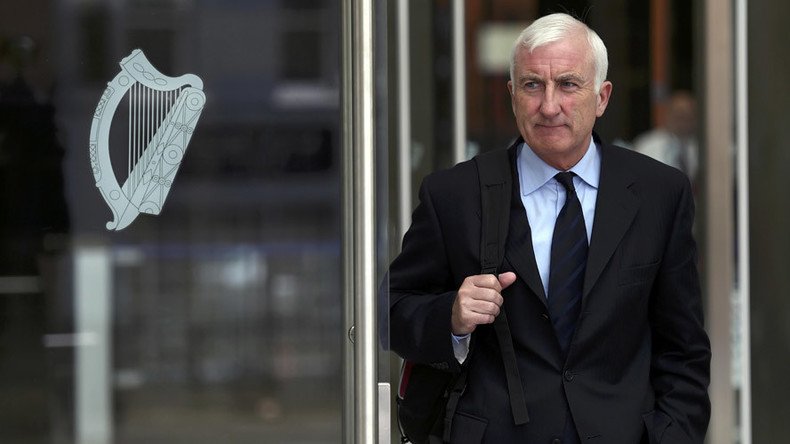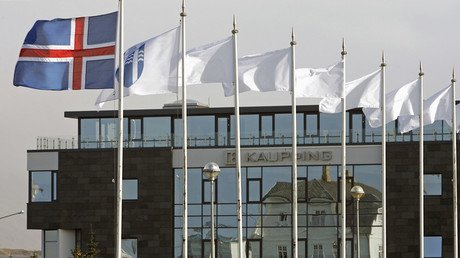‘Deceitful & corrupt’: Ireland sentences 3 bankers to jail for role in 2008 crisis

On Friday, a Dublin court sentenced three senior bankers to up to 3.5 years in prison for conspiring to defraud investors during the 2008 banking crisis. The convictions were seemingly applauded by Irish taxpayers concerned over a lack of accountability.
Former Irish Life and Permanent Chief Executive Denis Casey received two years and nine months after being found guilty in the country’s longest trial, which lasted 74 days.
The ex-finance director at the failed Anglo Irish Bank, Willie McAteer, got 42 months, while John Bowe, the bank’s former-head of Capital Markets, was sentenced to 24 months.
The three were found guilty of conspiring to mislead investors, lenders, and depositors into believing the infamous bank was still afloat. The bankers set up a 7.2-billion-euro circular transaction scheme from March to September of 2008 to increase Anglo’s balance sheet.
“By means that could be termed dishonest, deceitful and corrupt they manufactured 7.2 billion euros in deposits by obvious sham transactions,” Judge Martin Nolan said, adding that this was a “very serious crime.”
Irish Life used a non-banking subsidiary to make deposits, passing them off as customer deposits and not money coming in from another bank, which is considered to be much more secure.
The three jail sentences are some of the first in the world resulting in bankers facing prison time for their role in the 2008 crisis, which severely hurt Ireland’s economy and triggered a three-year sovereign bailout in 2010.
Meanwhile, two other Anglo-Irish bankers, chief operations officer Tiarnan O’Mahoney and former company secretary Bernard Daly had their jail time waved on appeal after spending only several months in prison.
The crisis still seems far from over in Ireland and elsewhere.
The Irish finance ministry said in June that it could be another 15 years before the country gets back the money it invested in the banks that were going under during the crisis.
Local media said Irish taxpayers have welcomed the court’s decision, after criticizing the government for failing to act. Ireland used up €64 billion of taxpayer money to pay for what is known as the largest state bank rescue in the Eurozone.
None of the senior bankers in the US or UK have faced jail time. Their maximum sentences for wrongdoing involved fines and settlements.
EBA’s stress tests
Meanwhile, financial problems continue to plague European banks, and now threaten the world’s oldest surviving bank – Italy’s Monte dei Paschi di Siena.
The latest stress tests conducted by the European Banking Authority (EBA) revealed that the historic bank, founded in 1472, would go bust should Europe suddenly face another severe economic downturn.
The EBA’s results showed that Monte dei Paschi di Siena’s capital buffer would run almost completely dry by 2018. The bank’s current capital buffer is 12.1 percent, but under the EBA’s “adverse” scenario it would fall to 2.2 percent by 2018.
Overall, the stress tests highlighted the still very weak state of the banking system in Europe following the crisis.
The EBA exposed the “risky” state of other major European banks, including the German giant Deutsche Bank, whose capital ratio has dropped from 11.1 to just 7.8 percent. The International Monetary Fund had already listed the bank as one of the major risks to global financial stability.
The stress tests also noted the declining capital position of the bailed-out Royal Bank of Scotland. Overall, the weakest results came from countries such as Italy, Ireland, Spain, and Austria.













